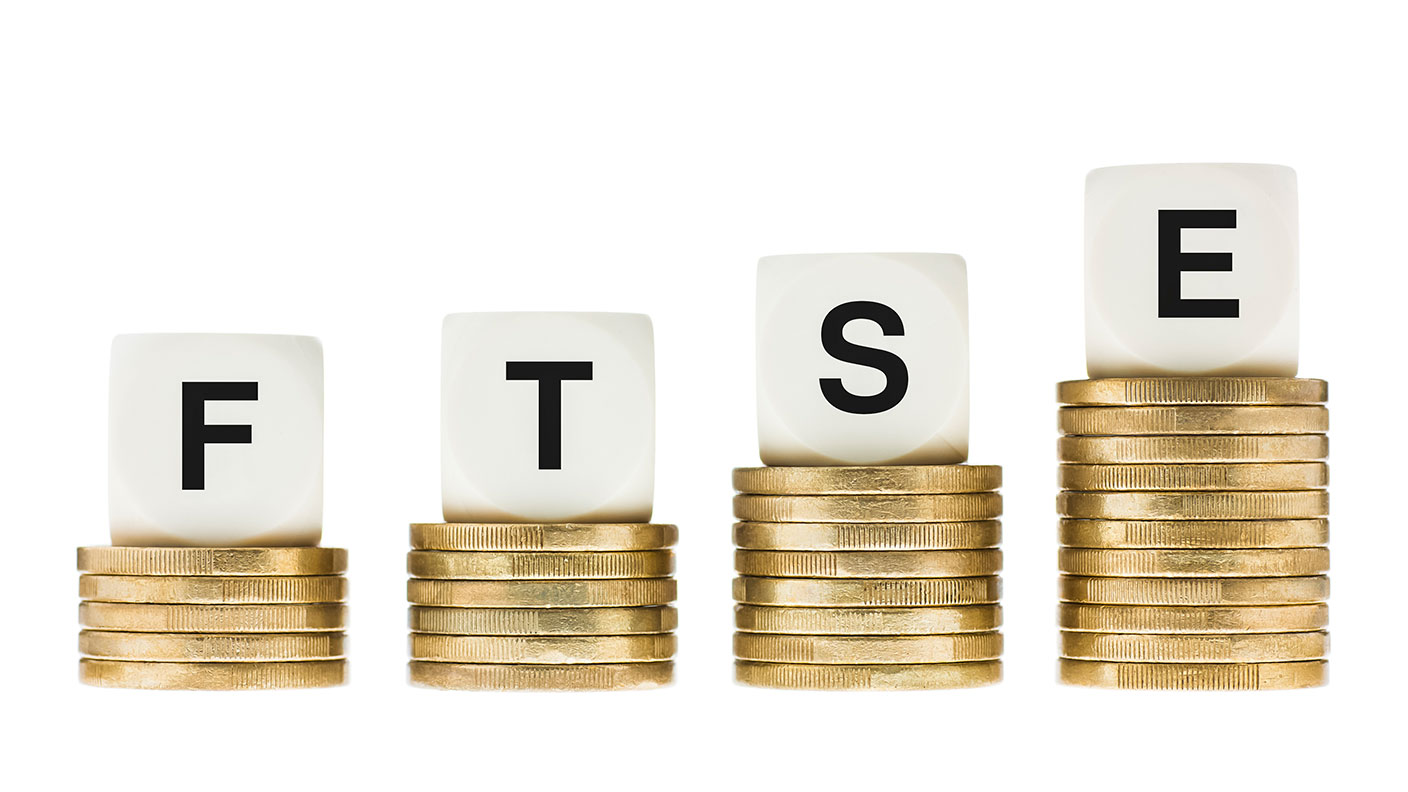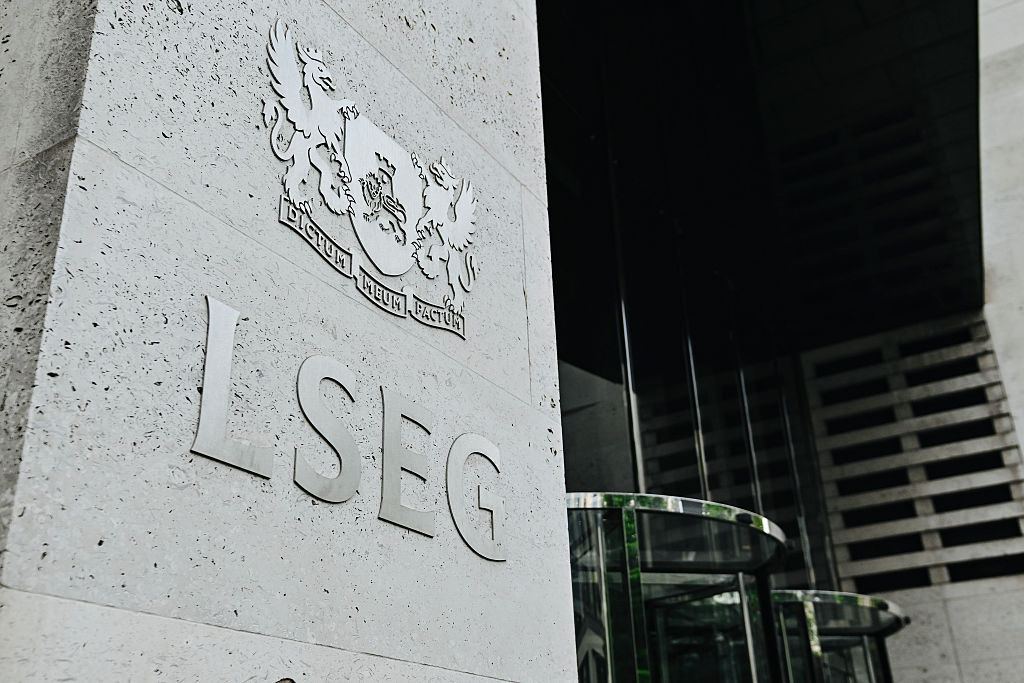The FTSE 100 is doing moderately well – can this continue?
The FTSE 100 performed well and better than expected in the first quarter of 2022. John Stepek looks at what has changed.


Get the latest financial news, insights and expert analysis from our award-winning MoneyWeek team, to help you understand what really matters when it comes to your finances.
You are now subscribed
Your newsletter sign-up was successful
Want to add more newsletters?

Twice daily
MoneyWeek
Get the latest financial news, insights and expert analysis from our award-winning MoneyWeek team, to help you understand what really matters when it comes to your finances.

Four times a week
Look After My Bills
Sign up to our free money-saving newsletter, filled with the latest news and expert advice to help you find the best tips and deals for managing your bills. Start saving today!
The first quarter of 2022 is over.
It's a natural point at which to take stock of what's happened in markets.
It's also a completely arbitrary point, of course. Just because markets have been doing something over the past three months doesn't mean they'll keep doing it.
MoneyWeek
Subscribe to MoneyWeek today and get your first six magazine issues absolutely FREE

Sign up to Money Morning
Don't miss the latest investment and personal finances news, market analysis, plus money-saving tips with our free twice-daily newsletter
Don't miss the latest investment and personal finances news, market analysis, plus money-saving tips with our free twice-daily newsletter
Yet, arbitrary or not, taking a snapshot of markets can give us an idea of what the overall narrative is at any given time.
And it's very clear from the first quarter of this year that the big stories in investment are now dramatically different to the ones that drove the post-2009 bull market...
The FTSE 100 is doing well – what's gone wrong with the world?
One of the most obvious changes in the investment environment is that the UK's headline stock market index isn't clutching tightly to the wooden spoon for once. That's quite the shift.
During the first quarter of 2022, the FTSE 100, which comprises the 100(-ish) biggest (in terms of market capitalisation) companies listed on the London Stock Exchange, gained 1.8%, notes George Steer in the FT.
You may not be cracking open the champagne on that sort of gain (certainly not with inflation sitting at its present levels). And if you'd been more adventurous, investing in Brazil say, you'd be up a whopping 34.3%, says Morningstar.
But it's rather a lot better than if you'd invested in most other major developed global stock markets – or British ones for that matter.
The FTSE 250, which comprises the next 250(-ish) companies, lost 10.6%, while the biggest companies on Aim – London's junior market - lost an even more brutal 16%.
As for international comparisons, eurozone stocks (as measured via the Stoxx 600 index) fell by 6.5%, while the S&P 500 dropped 4.9%.
There's a pretty straightforward story to tell here. The FTSE 100 has done reasonably well for two main reasons. One is that it has been the least popular developed market in the world for a long time now, so it was starting from a low base. That shunning was partly due to Brexit.
Two - which has nothing to do with Brexit – is that it is full of the sorts of stocks that everyone has hated for the duration of the post-2008 bull market. The FTSE 100 has banks (at the heart of the last bubble); miners and oil companies (hated because they're the opposite of both ESG and "digital" assets); and a distinct lack of hot tech stocks.
Oh and it's a dividend-heavy index in a world that had decided that regular payouts to investors showed that a company had run out of imagination.
So in a world where investors have decided that "value" investing is a dirty word, it's little surprise that the FTSE 100 index was hated.
Clearly that's changing now. Even before Russia invaded Ukraine, commodity and energy prices were surging. Inflation finally stopped being described as "transitory" in December last year as the Federal Reserve "retired" the word.
Meanwhile, on the other side of the equation, anything speculative (in other words, any asset where profits are a distant prospect) has struggled. "Growth" has lost its popularity. "Virtual" has become less appealing. "Expensive" is no longer a synonym for "high-quality".
This helps to explain why the US in particular – previously the world's leading stock market by far – has started to struggle. It's far more "growth-y" and "tech-y" than the FTSE 100.
The trend is clear. The rationale is pretty clear too. The big question now is: is it likely to continue?
How to invest for a continuing shift to value from growth
On the "big picture" level, a lot of this boils down to what you think will happen to interest rates, inflation and the economy over the coming year.
If you think that inflation will drop back down and that the world's central banks are going to be clear to cut interest rates, but that we'll scrape by avoiding a recession, then we could probably flip back to the good old days of growth trumping everything and everything being hunky-dory in a slightly glum manner.
If you think that inflation will persist, that central banks are caught between a rock and a very hard place, and that we might end up with the economy being dragged down by soaring living costs even as staff agitate for higher pay to compensate and countries scramble to secure scarce supplies of key resources – well, we can probably expect more of the same.
I'll admit I find scenario number two or some variation thereof the most likely option here. I would prefer a more cheerful outcome (and if wages start rising in a persistent manner, that would make me more optimistic about the economy, if not about earnings prospects).
But overall, it's hard to see how we go back to the previous "secular stagnation" scenario which sounded very gloomy but in practice, entrenched the dominance of the top performers and wasn't much of a problem as far as Wall Street was concerned.
How do you play this? We've looked at lots of ways to play lots of different commodities, from copper to silver and platinum. You could also invest in value-oriented investment trusts or those which are aimed at protecting you from inflation.
The other option is to look at a simple FTSE 100 tracker fund. It won't give you pure exposure to all of the things that will do best out of any shift from growth to value, but it is a cheap option for investing in the overall shift.
On that note, for more on the debate over passive investing and its impact on markets, you really should listen to this week's MoneyWeek podcast, in which Merryn chats to Robin Wigglesworth, FT journalist and author of Trillions, an in-depth history of index investing and its impacts. Have a listen here.
Get the latest financial news, insights and expert analysis from our award-winning MoneyWeek team, to help you understand what really matters when it comes to your finances.

-
 Should you buy an active ETF?
Should you buy an active ETF?ETFs are often mischaracterised as passive products, but they can be a convenient way to add active management to your portfolio
-
 Power up your pension before 5 April – easy ways to save before the tax year end
Power up your pension before 5 April – easy ways to save before the tax year endWith the end of the tax year looming, pension savers currently have a window to review and maximise what’s going into their retirement funds – we look at how
-
 Fund inflows hit a six-month high in November – where are investors putting their money?
Fund inflows hit a six-month high in November – where are investors putting their money?Investors returned to the financial markets amid the Autumn Budget in November 2025 but caution remains.
-
 The top stocks of 2025 - did you pick a winner?
The top stocks of 2025 - did you pick a winner?Last year was a chaotic one for the stock market, but which stocks did investors buy the most of?
-
 Canada will be a winner in this new era of deglobalisation and populism
Canada will be a winner in this new era of deglobalisation and populismGreg Eckel, portfolio manager at Canadian General Investments, selects three Canadian stocks
-
 London Stock Exchange gets go-ahead to run Pisces private stock market
London Stock Exchange gets go-ahead to run Pisces private stock marketThe Pisces market will allow investors to buy and sell shares in private companies. But how will it work, when will it launch, and who is allowed to use it?
-
 James Halstead is a family firm going cheap but should you buy?
James Halstead is a family firm going cheap but should you buy?James Halstead will rebound from a weak patch, while tax changes would be a buying opportunity
-
 Best-performing stocks in the S&P 500
Best-performing stocks in the S&P 500We take a look at the best-performing stocks in the US equity market. Are there opportunities outside of Big Tech?
-
 What is Vix – the fear index?
What is Vix – the fear index?What is Vix? We explain how the fear index could guide your investment decisions.
-
 The case for dividend growth stocks
The case for dividend growth stocksMany investors focus on yield alone when looking for income, that’s a mistake says Rupert Hargreaves. It’s the potential for dividend growth that really matters.